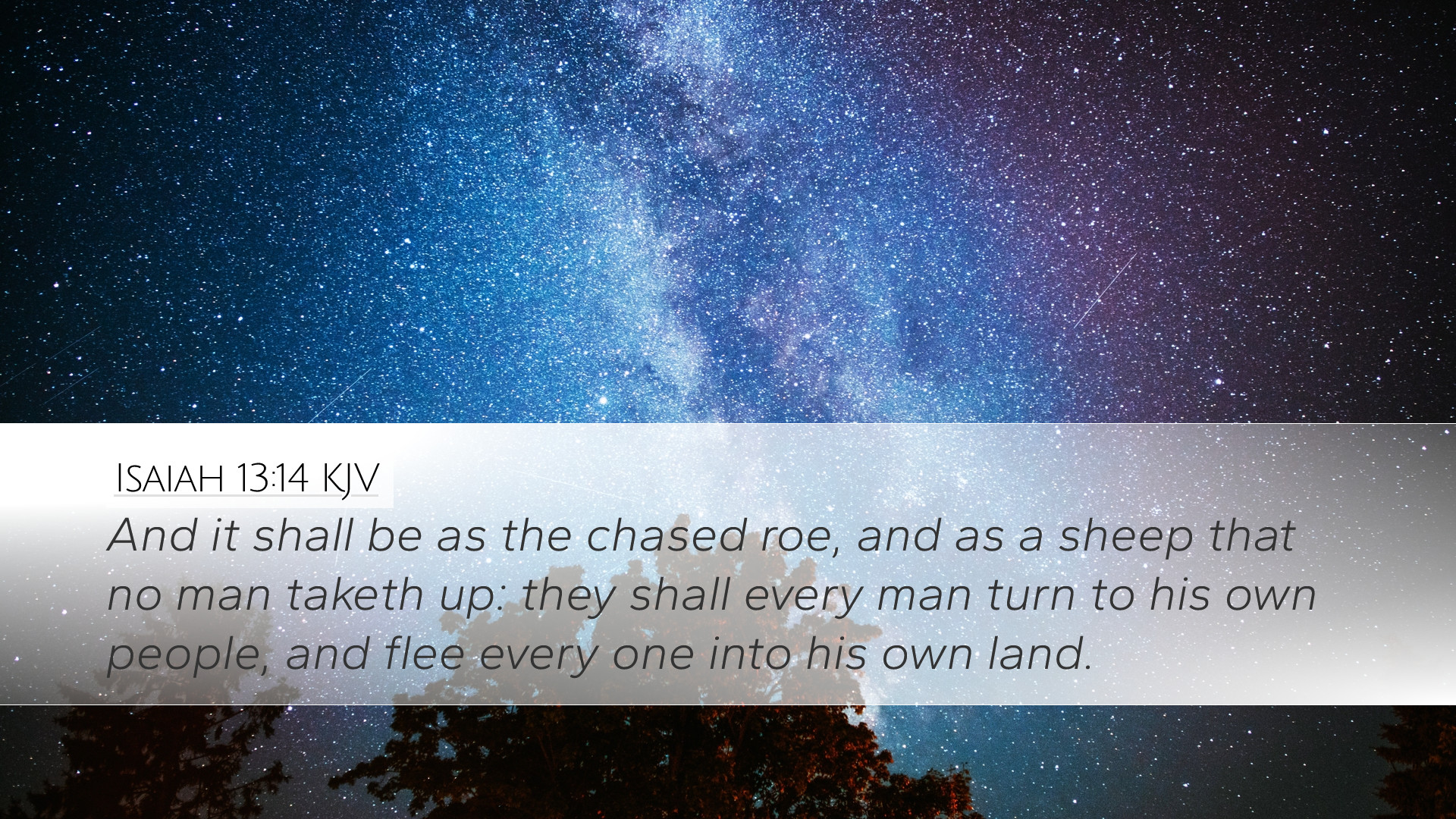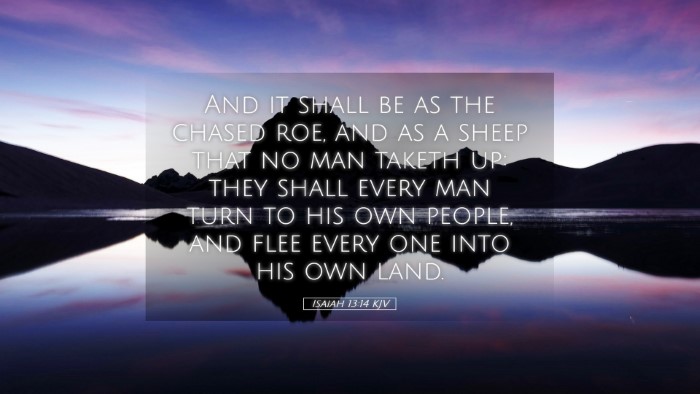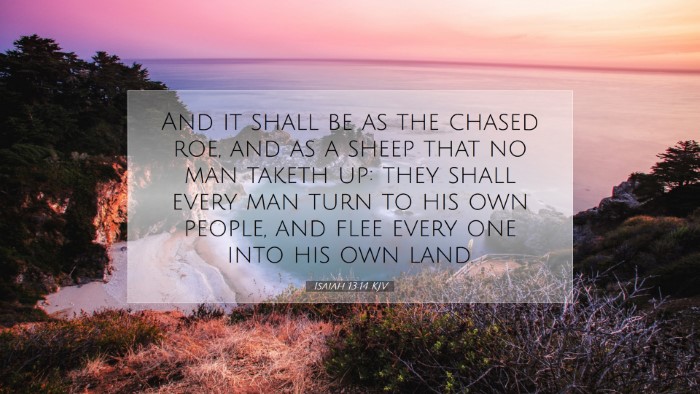Commentary on Isaiah 13:14
Verse: "And it shall be as the chased roe, and as a sheep that no man taketh up: they shall every man turn to his own people, and flee every one into his own land."
Introduction
Isaiah 13:14 is set against the backdrop of a prophetic declaration concerning the judgment of Babylon. This passage highlights the desolation and abandonment that would follow its fall, using powerful imagery to convey the depth of despair that would characterizes those within the city. Through the insights of Matthew Henry, Albert Barnes, and Adam Clarke, we will explore the theological and historical implications of this verse, providing meaningful interpretation for pastors, students, theologians, and Bible scholars.
Contextual Analysis
The surrounding passages in Isaiah 13 detail the impending doom of Babylon, illustrating the might of God’s judgment. Matthew Henry emphasizes that this prophecy serves as a reminder of God’s sovereignty over nations and empires. Babylon, known for its opulence and power, is ultimately portrayed as fragile in the face of divine wrath.
Albert Barnes adds that this prophecy serves as an encouragement to the Israelites, who might have felt overwhelmed by the power of their oppressors. The promise of Babylon's downfall reassures them of God's justice and care for His people.
Imagery of Flight and Fear
The phrase "as the chased roe" employs the metaphor of a hunted animal, imbued with deep feelings of fear and urgency. Adam Clarke elaborates on this imagery, implying that such panic leads to a frantic and unceremonious retreat from danger. The reference to the "sheep that no man taketh up" suggests a state of isolation in the face of calamity, depicting a society in complete disarray.
- Panic and Desperation: The fleeing individuals represent the sheer panic that ensues when divine judgment is fully realized. People are shown in dire circumstances, forced to run for their lives, unprotected and alone.
- Divine Sovereignty: The mention of flight implies that their situation is not merely a political upheaval but a divine act, emphasizing that recognition must be given to God’s ultimate authority.
Application for Today
This passage allows for rich application in today’s context, echoing the themes of accountability and the consequences of turning away from God. As noted by Matthew Henry, it illustrates that nations, like individuals, will face the judgment of God when they stray from righteousness.
- National Accountability: Just as Babylon fell due to its iniquities, modern nations must reflect on their adherence to divine principles.
- Personal Reflection: Individuals should consider the state of their own lives, recognizing the importance of repentance and turning toward God amidst societal chaos.
Theological Implications
Theological reflections on Isaiah 13:14 delve into the intersection of justice, mercy, and divine sovereignty. According to Albert Barnes, the judgment described is not merely punitive; it serves to purify and realign God's people with His purposes. God's judgement is also a preparation for subsequent restoration.
- Justice of God: The justice of God demands that sin be addressed. The fall of Babylon is a case study in the righteous judgment of God, affirming His holiness.
- Hope of Restoration: Among the despair, there lies hope. Just as destruction comes, restoration also follows, inviting reflection on the cyclical nature of divine discipline.
Conclusion
Isaiah 13:14 profoundly expresses the themes of fear and flight in the face of divine judgment—it serves as a significant reminder of the consequences of national and personal rebellion against God. It calls both individuals and nations to heed the warnings of divine resolve and recognize the need for alignment with God's sovereign will. Through the combined insights of Henry, Barnes, and Clarke, we are reminded that while judgment is inevitable, hope and restoration are always on the horizon for those who turn back to God.


